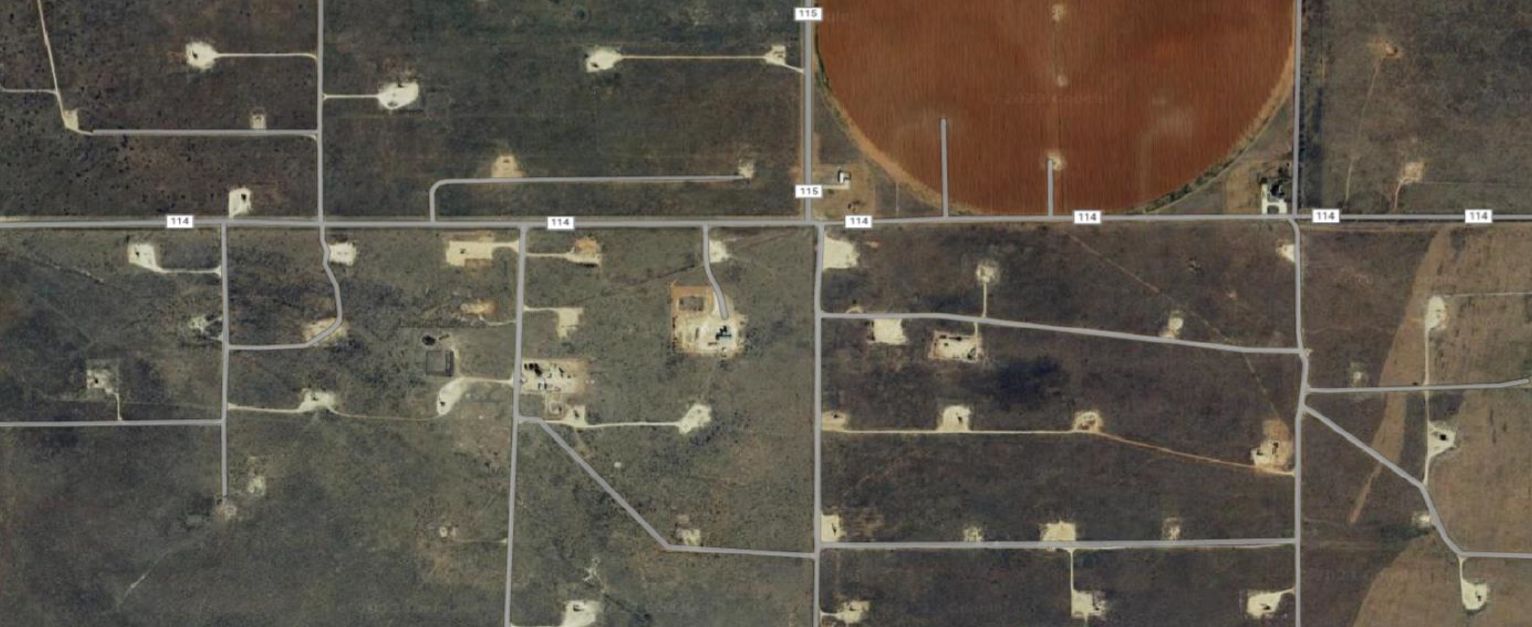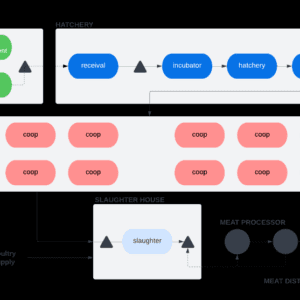This downloadable product contains a PDF file with a case study description and a Python script that contains a PuLP implementation of a continuous capacity planning problem.
Using PuLP this Python template solves a capacity planning problem using linear programming.
Linear optimization in Python for oil pump capacity planning
In the exemplary case study solved by this Python model a new oil field is prepared. For this, oil pumps must be purchased. Different pump types have different production capacities and purchasing prices.
The problem is to minimize purchasing expenses while at least securing required production volumes.

Another constraint is the available surface area of the oil field. Above figure displays an exemplary oil field in Texas.
KPIs traced by the linear capacity planning Python model
The optimization model considers the following KPIs:
- Purchasing expenses
- Production output
- Surface area occupied on the oil field
Who will benefit from this linear programming template?
Linear programming is a fundamental mathematical programming technique, applied not only in capacity planning. For example, logistics networks can be optimized with linear programming as well. It is also used for e.g. marketing campaign planning, pricing, and much more.
Hence, getting familiar with linear programming and owning a Python template for implementing a linear optimization program in Python, can be beneficial to a wide group of users. This includes students, analysts, and managers – in manufacturing, logistics, purchasing, accounting, controlling, and marketing.
More about linear optimization in Python and other programming languages
If you are interested in linear programming, capacity planning, and mathematical optimization, here are some related articles that might help in getting you started:
User Reviews
Be the first to review “Oil pump capacity optimization (Python)”
You must be logged in to post a review.
General Inquiries
There are no inquiries yet.






There are no reviews yet.